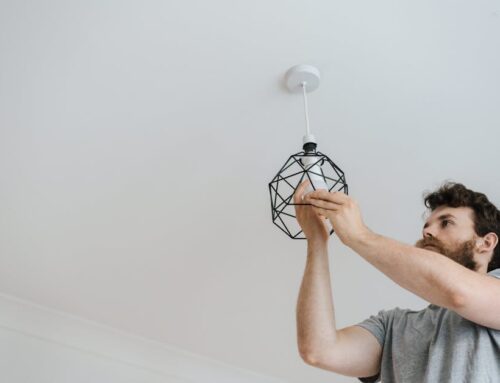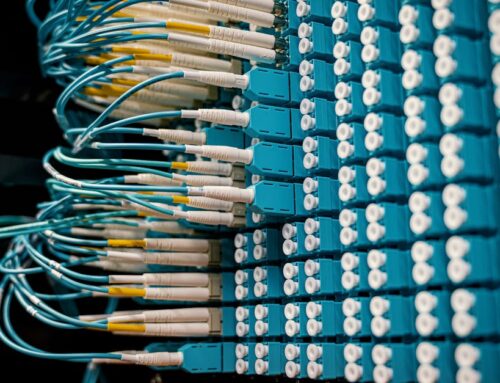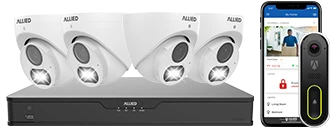Understanding the Importance of Home Security
The importance of home security cannot be overstated in today’s world. According to the Federal Bureau of Investigation (FBI), there were an estimated 1.2 million burglaries in the United States in 2019. To mitigate the risk and protect one’s home, selecting the right alarm company is crucial.
Home security systems do more than just protect against burglaries. They offer peace of mind by securing residences from various risks, including fire, carbon monoxide poisoning, and even medical emergencies. Advanced systems also integrate with smart home technology, allowing homeowners to monitor and control their home’s security through mobile apps.
Studies have shown that homes without security systems are up to 300% more likely to be broken into. Alarm systems act as both a deterrent and a responsive measure, alerting authorities and triggering immediate action in case of an intrusion.
Beyond personal safety, home security systems have financial benefits. Many insurance providers offer discounts on homeowners’ insurance policies when a comprehensive security system is installed. This reduction in premiums can help offset the initial and ongoing costs of the alarm system.
The security industry is continuously evolving, with companies developing more sophisticated and user-friendly technologies. From basic alarm systems to integrated smart home systems, homeowners have a wide array of options to choose from.
In summary, a robust home security system plays a vital role in safeguarding your property and providing peace of mind. By reducing the risk of burglary, fire, and other emergencies, it not only protects your assets but also enhances your overall quality of life.
Key Features to Look for in an Alarm System
Key Features to Look for in an Alarm System
24/7 Monitoring
One of the most critical features in any alarm system is 24/7 monitoring. This ensures that your home is observed around the clock, providing immediate alerts and responses in case of unauthorized access, fire, or other emergencies. A reliable monitoring service can effectively deploy emergency responders to your location, minimizing potential damage and personal risk.
Wireless Technology
Modern alarm systems often employ wireless technology to connect various components of the system. This not only simplifies installation but also enhances security by eliminating the risk of cutting wires to disable the system. Additionally, wireless systems can be easily expanded to include additional sensors and devices as needed.
Mobile App Integration
Mobile app integration allows you to control and monitor your alarm system remotely. Through these apps, users can arm or disarm the system, receive notifications, and view real-time video feeds. This feature provides greater convenience and peace of mind, knowing you can manage your home’s security from anywhere.
Environmental Monitoring
Alongside intruder detection, comprehensive alarm systems should also offer environmental monitoring. This includes sensors for smoke, carbon monoxide, flooding, and significant temperature changes. Such features are crucial for maintaining the overall safety and wellbeing of your household.
Video Surveillance
Integrating video surveillance with your alarm system offers a higher level of security. Cameras can be installed at key points around your property to monitor activity in real-time. Look for systems that provide high-definition video, night vision, and motion-activated recording. The ability to store footage in the cloud or other secure forms is also an important consideration.
Home Automation
Home automation capabilities are becoming increasingly popular in alarm systems. These allow for the integration of various smart devices, such as lights, thermostats, and locks, with your security system. Automation not only enhances convenience but also helps in energy management and creating routines that can improve overall home security.
User-Friendly Interface
Having an intuitive and user-friendly interface is essential for efficiently managing your alarm system. Whether it’s a control panel, a mobile app, or an online dashboard, the interface should be easy to navigate and understand, making it simple to adjust settings, check system status, and respond to alerts.
Professional Installation vs. DIY
When selecting an alarm system, consider whether you prefer professional installation or a DIY setup. Professionally installed systems usually come with expert guidance and maintenance support, while DIY systems offer flexibility and may be more cost-effective. Choose based on your comfort level with technology and installation complexity.
Customer Support
Reliable customer support is another essential feature. Check for companies that offer comprehensive support options, including phone, chat, and email assistance. Responsive customer service can provide prompt help during emergencies or troubleshooting, ensuring your alarm system functions optimally at all times.
Top Alarm Companies: A Comprehensive Review
When it comes to choosing an alarm company for your home security, Allied stands out as a notable option. With nearly three decades of experience serving Texas, Allied has garnered a reputation for excellence in both residential and commercial security solutions.
Allied offers limitless options for smart home security systems and surveillance, ensuring that homeowners can find a solution tailored to their specific needs. The company provides comprehensive security packages that include not only intrusion detection but also police, medical, and fire alarm monitoring. This ensures that your home is safeguarded against a range of potential threats.
One of the significant advantages of Allied is its emphasis on smart home integration. Homeowners can benefit from a complete smart home security system that offers both automation and protection. This integration allows for advanced features such as remote monitoring, real-time alerts, and seamless control of various security components from a single interface, making it convenient and effective.
Customer service is another area where Allied excels. The company promotes a high level of customer service with price match guarantees, ensuring that you receive the best value for your investment. Allied’s commitment to customer satisfaction is further demonstrated by its extensive local presence, with locations in major Texas cities including Houston, Dallas/Fort Worth, San Antonio, and Austin.
In terms of affordability, Allied offers competitive pricing with monthly monitoring starting at just $19.95. Additionally, the company provides free same-day setup, making it easy and cost-effective to secure your home as soon as you’re ready.
Beyond residential services, Allied also caters to small businesses and commercial properties. This versatility makes Allied a comprehensive security provider capable of addressing a wide range of security needs.
In summary, Allied’s extensive experience, wide range of security solutions, emphasis on customer service, and competitive pricing make it a top contender when choosing a home security company in Texas.
Comparing Costs and Subscription Plans
When it comes to choosing the best alarm company for your home security, understanding the costs and subscription plans is crucial. This chapter will provide a detailed look into what you can expect financially, helping you make an informed decision that suits your budget and security needs.
Upfront Costs
Many alarm companies require an upfront payment for equipment and installation. This initial cost can vary significantly depending on the company and the complexity of the system. For instance, basic systems might start at a few hundred dollars, while more advanced setups can exceed a thousand dollars.
Monthly Subscription Plans
In addition to upfront costs, you will need to consider ongoing expenses. Most companies offer monthly subscription plans that cover monitoring services. These plans can range from about $10 to $60 per month. Generally, the more features and services included, the higher the monthly fee.
- Basic Plans: Typically cover standard monitoring but may lack advanced features like video surveillance or home automation.
- Mid-Tier Plans: Offer an expanded range of features such as mobile app access, environmental monitoring (smoke, CO2), and some smart home integration.
- Premium Plans: Include full home automation, video surveillance, and sometimes additional perks like extended warranties and premium customer support.
Contract Lengths
Most alarm companies require a contract commitment, often ranging from one to three years. It’s important to read the fine print, as breaking a contract early can incur substantial fees.
Additional Costs to Consider
Besides the basic subscription, you might face extra costs for additional features or services. For example, extra sensors, external cameras, and home automation equipment often come with added expense. Some companies also charge for professional installation, while others offer DIY options at no extra cost.
Discounts and Special Offers
Many alarm companies provide discounts or special offers for new customers, such as reduced rates for the first few months or free equipment packages. Be on the lookout for these deals, as they can significantly reduce your initial costs.
Self-Monitoring vs. Professional Monitoring
Some systems offer the option of self-monitoring without a monthly fee. While self-monitoring can save money, it requires you to be responsible for responding to alerts. On the other hand, professional monitoring ensures that a trained team is always available to react to emergencies, providing a higher level of security for a monthly fee.
Value for Money
Ultimately, the best value will depend on your specific needs and budget. While a higher price often correlates with more features and better service, it’s important to balance what you can afford with the security features you require.
By carefully comparing the costs and subscription plans of different alarm companies, you can ensure you are making a financially sound decision that provides the protection you need.
Customer Satisfaction and Service Reliability
When evaluating alarm companies for your home security needs, it is essential to consider customer satisfaction< /em> and service reliability. These factors can provide valuable insights into the long-term performance and reliability of the security systems offered by different companies.
Customer Satisfaction Metrics
Customer satisfaction is often gauged through reviews, ratings, and feedback from existing users. Various platforms compile these reviews, allowing prospective customers to get a sense of the overall satisfaction levels. Some common themes to look for in customer feedback include:
- Response Time: How quickly the company responds to alarms and emergencies.
- Customer Support: The quality and availability of customer service.
- Ease of Use: User-friendly systems that are easy to install and operate.
- Product Reliability: The dependability of the alarm systems over time.
Service Reliability Metrics
Service reliability refers to how consistently the alarm systems perform their intended functions without failures. Key aspects of service reliability include:
- System Uptime: The percentage of time the system is operational without disruptions.
- Maintenance and Support: The availability of regular maintenance and technical support.
- Mobile App Performance: Reliability and user-friendliness of any associated mobile applications.
- Alarm Response: The effectiveness and speed of the alarm response teams or monitoring centers.
Example Metrics from Leading Alarm Companies
Below is a table summarizing customer satisfaction and service reliability metrics from some of the leading alarm companies:
| Company | Customer Satisfaction Rating | Average Response Time |
|---|---|---|
| ADT | 4.0/5 | 45 seconds |
| Vivint | 3.8/5 | 37 seconds |
| SimpliSafe | 4.3/5 | 30 seconds |
Conclusion
Assessing customer satisfaction and service reliability is crucial in choosing the best alarm company for your home security needs. By considering these metrics, homeowners can make a more informed decision, ensuring they select a company that not only offers robust security features but also excels in customer service and reliability.
Making an Informed Decision: Tips and Recommendations
Choosing the best alarm company for your home security requires careful consideration of various factors. To make an informed decision, here are some tips and recommendations based on real data and industry expertise.
Assess Your Specific Security Needs
Before selecting an alarm company, it’s important to assess the specific security needs of your home. Consider the size of your property, the number of entry points, and the presence of valuable items that require additional protection. Customized solutions are often more effective than one-size-fits-all approaches.
Research Company Reputation
Look into the reputation of the alarm companies you are considering. Customer reviews, Better Business Bureau (BBB) ratings, and industry reports can provide insights into the reliability and trustworthiness of each company. Choose companies with consistently high ratings and positive feedback from a broad user base.
Evaluate Technology and Equipment
Ensure that the alarm company offers state-of-the-art technology and reliable equipment. Features to look for include wireless sensors, mobile app control, and integration with other smart home devices. Advanced technology can significantly enhance your home’s security level.
Check Monitoring Services
Monitoring services are a critical component of home security. Opt for companies that provide 24/7 professional monitoring. This ensures that your system is always being watched, and emergency services can be dispatched promptly if needed.
Understand Contract Terms
Review the contract terms carefully. Some companies require long-term contracts with early termination fees, while others offer more flexible month-to-month plans. Make sure you understand the financial commitment and terms before signing any agreement.
Compare Pricing
Cost is an important factor when choosing an alarm company. Make a detailed comparison of the pricing for equipment, installation, and monthly monitoring fees. Here is a basic comparison to get you started:
| Company | Monthly Monitoring Fee |
|---|---|
| Company A | $29.99 |
| Company B | $39.99 |
| Company C | $49.99 |
Utilize Professional Consultation
Many alarm companies offer free consultations where a security expert will evaluate your home and recommend a tailored solution. Take advantage of these services to gain professional insights and ensure you are choosing a system that fits your needs perfectly.
Consider Customer Support
Reliable customer support is crucial. Opt for companies with strong customer service records, offering support via phone, email, and live chat. Prompt and effective support can make a significant difference if issues arise with your security system.
Review Warranties and Guarantees
Examine the warranties and guarantees provided by the alarm company. A good warranty can offer peace of mind, ensuring that the equipment will be serviced or replaced if it fails to function properly within a certain period.
By considering these factors, you can make an informed decision and choose the best alarm company to protect your home and loved ones effectively.












